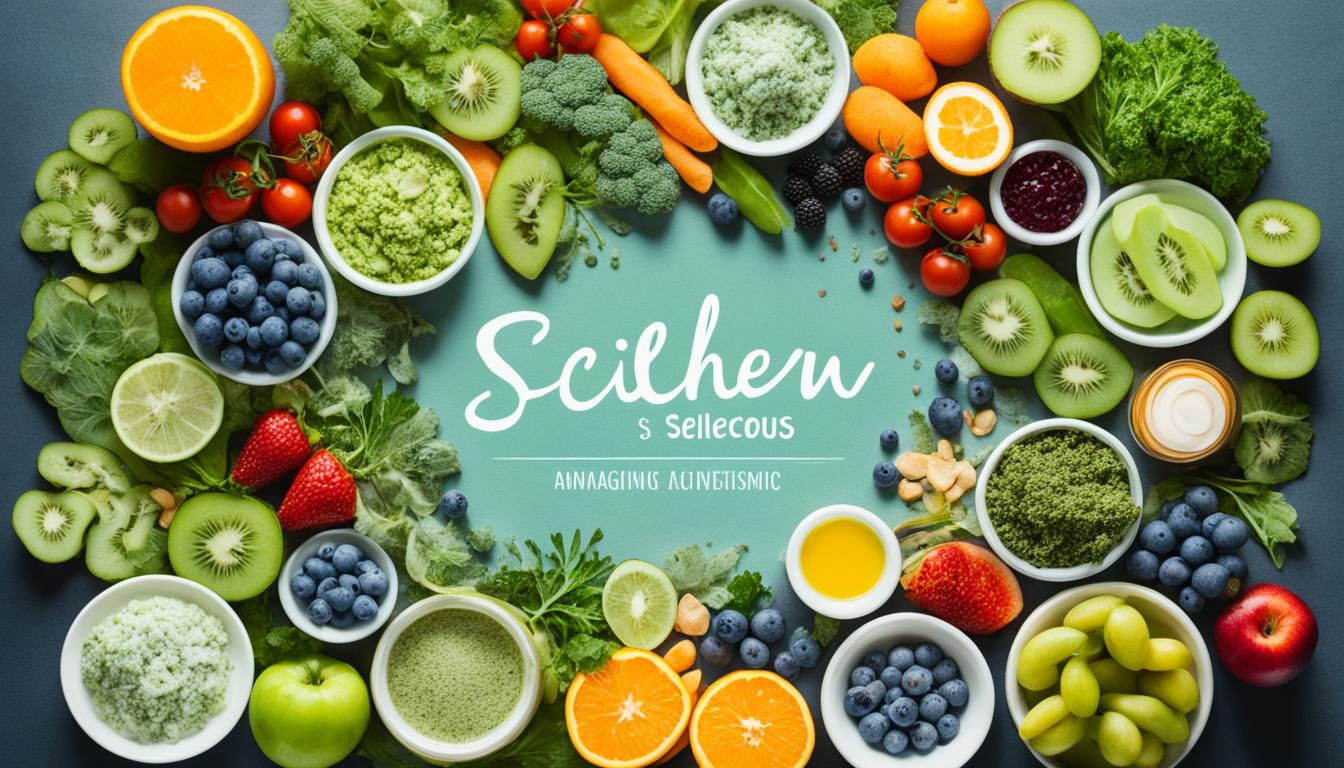Lichen Sclerosus and Diet: Foods to Help Manage
Did you know that lichen sclerosus is a chronic, inflammatory skin disease that primarily affects postmenopausal women? This condition, although not widely known, can have a significant impact on a person’s quality of life. While the exact causes of lichen sclerosus are still unclear, there is growing evidence suggesting that certain dietary changes may help manage its symptoms and promote overall well-being.
Key Takeaways:
- 1. Lichen sclerosus is a chronic, inflammatory skin disease primarily affecting postmenopausal women.
- 2. Limited research suggests that certain dietary changes may help manage lichen sclerosus symptoms.
- 3. A low-oxalate diet may be beneficial as high levels of oxalates in the urine can contribute to vulvar burning and skin irritation.
- 4. Exploring an autoimmune protocol diet may be worthwhile, especially for those with lichen sclerosus and co-occurring autoimmune diseases.
- 5. Hydration and calcium citrate supplementation can also be important factors in managing lichen sclerosus symptoms.
The Potential Impact of Histamines, Sugar, and Gluten on Lichen Sclerosus
While the direct impact of histamines, sugar, and gluten on lichen sclerosus is not well understood, there may be potential links between these factors and the inflammatory nature of the condition. Histamines, which are involved in the immune and inflammatory responses, can play a role in inflammatory skin conditions like lichen sclerosus.
Histamine intolerance, which results from the body’s inability to metabolize ingested histamine, could potentially worsen symptoms in some individuals.
Similarly, diets high in refined sugar and starch, low in fruits, vegetables, and whole grains, have been associated with chronic inflammation, which could exacerbate lichen sclerosus symptoms.
Although gluten is not directly linked to lichen sclerosus, there is evidence suggesting a connection between autoimmune conditions, hormone imbalances, and dietary triggers, making it worth considering a gluten-free diet.
While more research is needed, individuals with lichen sclerosus may benefit from exploring the potential impact of histamines, sugar, and gluten on their symptoms through dietary modifications.
| Factors | Potential Impact on Lichen Sclerosus |
|---|---|
| Histamines | Involvement in immune and inflammatory responses, potential exacerbation of symptoms in some individuals with histamine intolerance |
| Sugar and Starch | Association with chronic inflammation, potentially worsening lichen sclerosus symptoms |
| Gluten | Suggested connection with autoimmune conditions and hormone imbalances, worth considering a gluten-free diet |
Tips for Managing Lichen Sclerosus Symptoms Through Diet
Managing lichen sclerosus symptoms through diet involves several strategies. First, considering an autoimmune protocol diet could be beneficial, as there is a strong association between lichen sclerosus and autoimmune conditions. The autoimmune protocol diet involves eliminating potential trigger foods, such as grains, legumes, dairy, eggs, and processed sugars, to determine the specific dietary triggers for each individual. Working with a functional medicine practitioner or dietitian can provide guidance and support throughout this process.
Additionally, ensuring an adequate intake of calcium through high-calcium foods or calcium citrate supplementation may help reduce the absorption of oxalates in the body and alleviate symptoms. Calcium citrate is a form of calcium that is easily absorbed by the body and can be beneficial for individuals with lichen sclerosus. Including calcium-rich foods such as dairy products, leafy greens, and almonds in the diet can also contribute to calcium intake.
Staying hydrated by drinking plenty of water is important for overall skin health and can help flush out irritants. Hydration plays a crucial role in maintaining the body’s natural detoxification process and supporting optimal skin function. Along with water, incorporating hydrating foods like cucumbers, watermelon, oranges, and celery can provide additional hydration benefits.
It’s essential to keep in mind that there is no one-size-fits-all approach to a lichen sclerosus diet, as triggers and dietary needs can vary among individuals. Experimenting with different dietary modifications and closely monitoring symptoms can help individuals identify the best approach for managing their lichen sclerosus symptoms. Working with healthcare professionals and seeking personalized advice can provide valuable insights and guidance for developing a suitable diet plan.
Source Links
- https://www.healthline.com/health/lichen-sclerosus-diet#foods-to-avoid
- https://www.livestrong.com/article/535308-foods-to-avoid-with-lichen-sclerosus/
- https://lssupportnetwork.org/lichen-sclerosus-and-diet-comprehensive-guide/
- George Conway Weight Loss: My Healthy Journey! - May 19, 2024
- Menopause Diet: 5-Day Plan to Shed Pounds - May 18, 2024
- Diet Cranberry Juice: My Healthier Sip Choice - May 16, 2024




Post Comment
You must be logged in to post a comment.